Mobile phone text messaging for medication adherence in secondary prevention of cardiovascular disease
- PMID: 38533994
- PMCID: PMC10966941
- DOI: 10.1002/14651858.CD011851.pub3
Mobile phone text messaging for medication adherence in secondary prevention of cardiovascular disease
Abstract
Background: Cardiovascular diseases (CVDs) are the leading cause of death globally, accounting for almost 18 million deaths annually. People with CVDs have a five times greater chance of suffering a recurrent cardiovascular event than people without known CVDs. Although drug interventions have been shown to be cost-effective in reducing the risk of recurrent cardiovascular events, adherence to medication remains suboptimal. As a scalable and cost-effective approach, mobile phone text messaging presents an opportunity to convey health information, deliver electronic reminders, and encourage behaviour change. However, it is uncertain whether text messaging can improve medication adherence and clinical outcomes. This is an update of a Cochrane review published in 2017.
Objectives: To evaluate the benefits and harms of mobile phone text messaging for improving medication adherence in people with CVDs compared to usual care.
Search methods: We searched CENTRAL, MEDLINE, Embase, four other databases, and two trial registers. We also checked the reference lists of all primary included studies and relevant systematic reviews and meta-analyses. The date of the latest search was 30 August 2023.
Selection criteria: We included randomised controlled trials (RCTs) with participants with established arterial occlusive events. We included trials investigating interventions using short message service (SMS) or multimedia messaging service (MMS) with the aim of improving adherence to medication for the secondary prevention of cardiovascular events. The comparator was usual care. We excluded cluster-RCTs and quasi-RCTs.
Data collection and analysis: We used standard Cochrane methods. Our primary outcomes were medication adherence, fatal cardiovascular events, non-fatal cardiovascular events, and combined CVD event. Secondary outcomes were low-density lipoprotein cholesterol for the effect of statins, blood pressure for antihypertensive drugs, heart rate for the effect of beta-blockers, urinary 11-dehydrothromboxane B2 for the antiplatelet effects of aspirin, adverse effects, and patient-reported experience. We used GRADE to assess the certainty of the evidence for each outcome.
Main results: We included 18 RCTs involving a total of 8136 participants with CVDs. We identified 11 new studies in the review update and seven studies in the previous version of the review. Participants had various CVDs including acute coronary syndrome, coronary heart disease, stroke, myocardial infarction, and angina. All studies were conducted in middle- and high-income countries, with no studies conducted in low-income countries. The mean age of participants was 53 to 64 years. Participants were recruited from hospitals or cardiac rehabilitation facilities. Follow-up ranged from one to 12 months. There was variation in the characteristics of text messages amongst studies (e.g. delivery method, frequency, theoretical grounding, content used, personalisation, and directionality). The content of text messages varied across studies, but generally included medication reminders and healthy lifestyle information such as diet, physical activity, and weight loss. Text messages offered advice, motivation, social support, and health education to promote behaviour changes and regular medication-taking. We assessed risk of bias for all studies as high, as all studies had at least one domain at unclear or high risk of bias. Medication adherence Due to different evaluation score systems and inconsistent definitions applied for the measurement of medication adherence, we did not conduct meta-analysis for medication adherence. Ten out of 18 studies showed a beneficial effect of mobile phone text messaging for medication adherence compared to usual care, whereas the other eight studies showed either a reduction or no difference in medication adherence with text messaging compared to usual care. Overall, the evidence is very uncertain about the effects of mobile phone text messaging for medication adherence when compared to usual care. Fatal cardiovascular events Text messaging may have little to no effect on fatal cardiovascular events compared to usual care (odds ratio 0.83, 95% confidence interval (CI) 0.47 to 1.45; 4 studies, 1654 participants; low-certainty evidence). Non-fatal cardiovascular events We found very low-certainty evidence that text messaging may have little to no effect on non-fatal cardiovascular events. Two studies reported non-fatal cardiovascular events, neither of which found evidence of a difference between groups. Combined CVD events We found very low-certainty evidence that text messaging may have little to no effect on combined CVD events. Only one study reported combined CVD events, and did not find evidence of a difference between groups. Low-density lipoprotein cholesterol Text messaging may have little to no effect on low-density lipoprotein cholesterol compared to usual care (mean difference (MD) -1.79 mg/dL, 95% CI -4.71 to 1.12; 8 studies, 4983 participants; very low-certainty evidence). Blood pressure Text messaging may have little to no effect on systolic blood pressure (MD -0.93 mmHg, 95% CI -3.55 to 1.69; 8 studies, 5173 participants; very low-certainty evidence) and diastolic blood pressure (MD -1.00 mmHg, 95% CI -2.49 to 0.50; 5 studies, 3137 participants; very low-certainty evidence) when compared to usual care. Heart rate Text messaging may have little to no effect on heart rate compared to usual care (MD -0.46 beats per minute, 95% CI -1.74 to 0.82; 4 studies, 2946 participants; very low-certainty evidence).
Authors' conclusions: Due to limited evidence, we are uncertain if text messaging reduces medication adherence, fatal and non-fatal cardiovascular events, and combined cardiovascular events in people with cardiovascular diseases when compared to usual care. Furthermore, text messaging may result in little or no effect on low-density lipoprotein cholesterol, blood pressure, and heart rate compared to usual care. The included studies were of low methodological quality, and no studies assessed the effects of text messaging in low-income countries or beyond the 12-month follow-up. Long-term and high-quality randomised trials are needed, particularly in low-income countries.
Copyright © 2024 The Authors. Cochrane Database of Systematic Reviews published by John Wiley & Sons, Ltd. on behalf of The Cochrane Collaboration.
Conflict of interest statement
JR holds a National Health and Medical Research Council (NHMRC) Fellowship (investigator‐initiated), which supports part of her salary that includes academic time spent working on this review; and an NHMRC Synergy Grant, paid to institution. JR was one of the authors of Chow 2015 and Chow 2022. JR was not involved in assessing the eligibility of the studies, extracting data, or assessing risk of bias or the certainty of the evidence for this review update. These tasks were performed by two independent review authors (QT, NH). Chow 2015 was supported by grants from the National Heart Foundation of Australia Grant‐in‐Aid (G10S5110) and a BUPA Foundation Grant. Chow 2022 was supported by the NHMRC (APP1042290). JR retained complete control over the design, methods, data analysis, and reporting of both studies. JR did not receive the funds personally for either study and did not benefit financially from the payment or have access to or control of the funds. JR reports a trademark for the TEXTCARE software that delivers text message programmes for research, which is owned by the University of Sydney. It is not patented and was not used to deliver any of the research projects for this Cochrane review. JR has not benefitted financially from the trademark, and the University of Sydney does not intend to commercialise it.
QT: none known.
KH reports a grant from the National Health and Medical Research Council, which is a government‐funded fellowship and is not related to the topic. KH retains complete control over all study designs, methods, data analysis, and reporting related to her grant.
MH: none known.
NH: none known.
CZ: none known.
CF is a former editor of Cochrane Heart but was not an editor of Cochrane Heart in the 36 months prior to this review update. CF was not involved in the editorial process for this review. CF was also involved in a study eligible for inclusion in the review (Bermon 2021). The study was supported by the Ministerio de Ciencia Tecnología e Innovación (code: 656672553352; grants 899‐2015 and 753 de 2016); Fundación Cardiovascular de Colombia, Floridablanca; UK Medical Research Council Funded Reference (reference number: MR/N021304/1); and the Universidad Pontificia Bolivariana, Bucaramanga. However, CF was not involved in assessing the eligibility of the study, extracting data, or assessing risk of bias or the certainty of the evidence for this review update; these tasks were performed by two independent review authors (QT, NH). CF’s institution did not receive any payments for this study, and CF had complete control over the study design, methods, data analysis, and reporting.
PP has published an opinion on the topic of text messaging, Adler 2018, and several editorials, but these were unrelated to the current review. PP is affiliated with the World Heart Federation, and was and remains affiliated to London School of Hygiene & Tropical Medicine, but the organisation received no financial contribution for PP's work on this Cochrane review and had no involvement in the protocol or published work. PP is a former editorial advisor of the Cochrane Heart Group and was not involved in the editorial process for this review update. PP was also involved in the Bermon 2021 study, which was eligible for inclusion in the review. The study was supported by the Ministerio de Ciencia Tecnología e Innovación (code: 656672553352; grants 899‐2015 and 753 de 2016); Fundación Cardiovascular de Colombia, Floridablanca; and UK Medical Research Council Funded Reference (reference number: MR/N021304/1). However, PP was not involved in assessing the eligibility of the study, extracting data, or assessing risk of bias or the certainty of the evidence for this review update; these tasks were performed by two independent review authors (QT, NH). PP’s institution did not receive any payments for this study, and PP had complete control over the study design, methods, data analysis, and reporting.
CKC was one of the authors of Chow 2015 and Chow 2022. CKC was not involved in assessing the eligibility of the studies, extracting data, or assessing risk of bias or the certainty of the evidence for this review update. These tasks were performed by two independent review authors (QT, NH). Chow 2015 was supported by grants from the National Heart Foundation of Australia Grant‐in‐Aid (G10S5110) and a BUPA Foundation Grant. Chow 2022 was supported by the National Health and Medical Research Council (NHMRC) (APP1042290). CKC was the Principal Investigator for both of these studies, and, as such, payments were made to her institution, University of Sydney, for delivery of the research projects (such as paying research assistants and to perform measurements and analyses). However, both studies were investigator‐initiated, and CKC received no direct financial gain and retained complete control over the study design, methods, data analysis, and reporting. CKC holds an NHMRC Fellowship (investigator‐initiated), which supports part of her salary that includes academic time spent working on this review; paid to institution, but CKC benefitted or had control over the funds. CKC is a Cardiologist at Westmead Hospital in Australia. CKC reports a trademark for the TEXTCARE software that delivers text message programmes for research, which is owned by the University of Sydney. It is not patented and was not used to deliver any of the research projects for this Cochrane review. CKC has not benefitted financially from the trademark, and the University of Sydney does not intend to commercialise it. CKC has also published an opinion piece on the topic of text messaging (Klimis 2021).
Figures

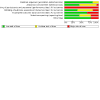

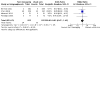
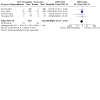


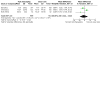
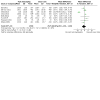
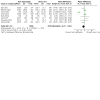
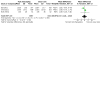
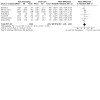
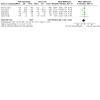
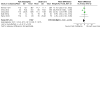
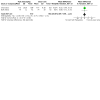



Update of
-
Mobile phone text messaging to improve medication adherence in secondary prevention of cardiovascular disease.Cochrane Database Syst Rev. 2017 Apr 29;4(4):CD011851. doi: 10.1002/14651858.CD011851.pub2. Cochrane Database Syst Rev. 2017. Update in: Cochrane Database Syst Rev. 2024 Mar 27;3:CD011851. doi: 10.1002/14651858.CD011851.pub3. PMID: 28455948 Free PMC article. Updated.
References
References to studies included in this review
Bae 2021 {published data only}
-
- KCT0005087. Effect of text messaging program on lifestyle and clinical outcomes in patients with cardiovascular disease. cris.nih.go.kr/cris/search/detailSearch.do/19282 (first received 11 September 2019).
Bermon 2021 {published data only}
-
- Bermon A, Uribe AF, Pérez-Rivero PF, Prieto-Merino D, Saaibi JF, Silva FA, et al. Efficacy and safety of text messages targeting adherence to cardiovascular medications in secondary prevention: TXT2HEART Colombia randomized controlled trial. JMIR mHealth and uHealth 2021;9(7):e25548. [DOI: 10.2196/25548] - DOI - PMC - PubMed
-
- Bermon A, Uribe-Rodríguez AF, Pérez-Rivero PF, Prieto-Merino D, Rivera DIC, Guio E, et al. Evaluation of the efficacy and safety of text messages targeting adherence to cardiovascular medications in secondary prevention: the txt2heart Colombia randomised controlled trial protocol. BMJ Open 2019;9:e028017. [DOI: 10.1136/ bmjopen-2018-028017] - PMC - PubMed
-
- NCT03098186. TXT2HEART COLOMBIA: evaluation of the efficacy and safety of text messages to improve adherence to cardiovascular medications in secondary prevention [TXT2HEART COLOMBIA: evaluation of the efficacy and safety of text messages to improve adherence to cardiovascular medications in secondary prevention]. clinicaltrials.gov/ct2/show/NCT03098186 (first received 3 March 2017).
Chen 2019 {published data only}
-
- Chen C, Li X, Kang Y, Liu H, Liang YD, Zhang Q. Post-discharge short service message improves short-term clinical outcome and self-care behavior in Chinese patients with chronic heart failure. European Heart Journal 2018;39(Suppl 1):797-8. [DOI: 10.1093/eurheartj/ehy563.P3770] - DOI
-
- ChiCTR-INR-17012316. Effect of post-discharge text messages on clinical outcomes in patients with heart failure [Effect of post-discharge text messages on clinical outcomes in patients with heart failure]. trialsearch.who.int/Trial2.aspx?TrialID=ChiCTR-INR-17012316 (first received 9 August 2018).
-
- Li X, Chen C, You GY, Zhang Q. Post-discharge text messaging intervention improved clinical outcomes in patients with heart failure. European Heart Journal 2016;37(Suppl 1):727-8. [DOI: 10.1093/eurheartj/ehw433] - DOI
Chow 2015 {published data only}
-
- ACTRN12611000161921. Tobacco, EXercise and dieT MEssages (TEXT ME): the effect of semi-personalised lifestyle reminder text message intervention on cardiovascular disease risk [Tobacco, EXercise and dieT MEssages (TEXT ME): The effect of a semi-personalised lifestyle reminder text message intervention on cardiovascular risk factors in patients with cardiovascular disease and those who are at high risk of cardiovascular disease]. anzctr.org.au/Trial/Registration/TrialReview.aspx?ACTRN=ACTRN12611000161921 (first received 3 February 2011).
-
- Chow CK, Redfern J, Thiagalingam A, Jan S, Whittaker R, Hackett M, et al. Design and rationale of the tobacco, exercise and diet messages (TEXT ME) trial of a text message-based intervention for ongoing prevention of cardiovascular disease in people with coronary disease: a randomised controlled trial protocol. BMJ Open 2012;2(1):e000606. [DOI: 10.1136/bmjopen-2011-000606] - DOI - PMC - PubMed
-
- Thakkar J, Redfern J, De Keizer L, Thiagalingam A, Chow C. Patient perceptions of text message-based intervention for secondary prevention of cardiovascular events. Heart, Lung and Circulation 2013;22(Suppl 1):S264. [DOI: 10.1016/j.hlc.2013.05.630] - DOI
Chow 2022 {published data only}
-
- ACTRN12613000793718. TEXT messages to improve MEDication adherence & Secondary prevention – TEXTMEDS [TEXT messages to improve MEDication adherence & Secondary prevention in patients with acute coronary syndrome - TEXTMEDS]. anzctr.org.au/Trial/Registration/TrialReview.aspx?id=364448&isReview... (first received 18 June 2013).
-
- Chow CK, Klimis H, Thiagalingam A, Redfern J, Hillis GS, Brieger D, et al. Text messages to improve medication adherence and secondary prevention after acute coronary syndrome: the TEXTMEDS randomized clinical trial. Circulation 2022;145(19):1443-55. [DOI: 10.1161/CIRCULATIONAHA.121.056161] - DOI - PubMed
-
- Chow CK, Thiagalingam A, Santo K, Kok C, Thakkar J, Stepien S, et al. TEXT messages to improve MEDication adherence and Secondary prevention (TEXTMEDS) after acute coronary syndrome: a randomised clinical trial protocol. BMJ Open 2018;8:e019463. [DOI: 10.1136/bmjopen-2017-019463] - DOI - PMC - PubMed
Dale 2015a {published data only}
-
- ACTRN12613000901707. Text4Heart: a text message and internet-based comprehensive cardiac rehabilitation intervention [A randomised controlled trial to determine the efficacy of a text message and Internet-based comprehensive cardiac rehabilitation programme to improve adherence to lifestyle change compared with usual care in New Zealand adults with a diagnosis of cardiovascular disease]. anzctr.org.au/ACTRN12613000901707.aspx (first received 9 August 2013).
-
- Dale LP, Whittaker R, Jiang Y, Stewart R, Rolleston A, Maddison R. Text message and internet support for coronary heart disease self-management: results from the Text4Heart randomized controlled trial. Journal of Medical Internet Research 2015;17(10):e237. [DOI: 10.2196/jmir.4944] - DOI - PMC - PubMed
Fang 2016 {published data only}
Huo 2019 {published data only}
-
- Huo X, Krumholz HM, Bai X, Spatz ES, Ding Q, Horak P, et al. Effects of mobile text messaging on glycemic control in patients with coronary heart disease and diabetes mellitus: a randomized clinical trial. Circulation Cardiovascular Quality and Outcomes 2019;12(9):e005805. [DOI: 10.1161/CIRCOUTCOMES.119.005805] - DOI - PubMed
-
- NCT02883842. Cardiovascular Health and Text Messaging-Diabetes Mellitus (CHAT-DM) Study [Effectiveness of text messaging on risk factors control and medication adherence among patients with Coronary Heart Disease and Diabetes in China: cardiovascular health andtext messaging-Diabetes Mellitus (CHAT-DM) study]. clinicaltrials.gov/ct2/show/NCT02883842 (first received 30 August 2016).
Kamal 2015 {published data only}
-
- Kamal AK, Shaikh Q, Pasha O, Azam I, Islam M, Memon AA, et al. A randomized controlled behavioral intervention trial to improve medication adherence in adult stroke patients with prescription tailored short messaging service (SMS)-SMS4Stroke study. BMC Neurolology 2015;15:212. [DOI: 10.1186/s12883-015-0471-5] - DOI - PMC - PubMed
Khonsari 2015 {published data only}
-
- Khonsari S, Subramanian P, Chinna K, Latif LA, Ling LW, Gholami O. Effect of a reminder system using an automated short message service on medication adherence following acute coronary syndrome. European Journal of Cardiovascular Nursing 2015;14(2):170-9. [DOI: 10.1177/1474515114521910] - DOI - PubMed
Maddison 2021 {published data only}
-
- ACTRN12616000422426. Text4Heart Partnership: a text messaging program to enhance self-management of cardiovascular disease [Text messaging to enhance self-management of cardiovascular disease]. anzctr.org.au/Trial/Registration/TrialReview.aspx?ACTRN=12616000422426 (first received 23 March 2016).
Ni 2022 {published data only}
-
- NCT02793830. A mobile phone based medication reminder program [A mobile phone based medication reminder program for patients in China with coronary heart disease: a pilot study]. clinicaltrials.gov/ct2/show/NCT02793830 (first received 8 June 2016).
Pandey 2017 {published data only}
-
- NCT02783287. The impact of text messaging on medication adherence and exercise regimen among post-myocardial infarction patients. clinicaltrials.gov/ct2/show/NCT02783287 (first received 26 May 2016).
-
- Pandey A, Choudhry N. An m-health application of daily text messages to address forgetfulness as contributor to non-adherence to medications post-myocardial infarction. Circulation 2015;132:A18641. [DOI: 10.1161/circ.132.suppl_3.18641] - DOI
-
- Pandey AK, Choudhry N. Text message reminders to address medication non-adherence in post-MI patients: a one year intervention study. Canadian Journal of Cardiology 2014;30(10):S179. [DOI: 10.1016/j.cjca.2014.07.280] - DOI
Park 2014a {published data only}
Passaglia 2021 {published data only}
-
- NCT03414190. Impact of text messages to promote secondary prevention after acute coronary syndrome [Impact of a mobile phone text messages intervention on the secondary prevention of cardiovascular events after acute coronary syndrome]. clinicaltrials.gov/show/NCT03414190 (first received 29 January 2018).
-
- Passaglia LG, Brant LC, Silva JL, Nascimento BR, Ribeiro AL. Text messages to promote secondary prevention after acute coronary syndrome (IMPACS trial). International Journal of Cardiovascular Sciences 2021;35(2):202-13. [DOI: 10.36660/ijcs.20200378] - DOI
Quilici 2013 {published data only}
-
- Quilici J, Fugon L, Beguin S, Morange PE, Bonnet JL, Alessi MC, et al. Effect of motivational mobile phone short message service on aspirin adherence after coronary stenting for acute coronary syndrome. International Journal of Cardiology 2013;168(1):568-9. [DOI: 10.1016/j.ijcard.2013.01.252] - DOI - PubMed
Ross 2021 {published data only}
-
- NCT02336919. The use of texting messaging to improve the hospital-to-community transition period in cardiovascular disease patients (Txt2Prevent) [The use of texting messaging to improve the hospital-to-community transition and prevent readmission in patients with cardiovascular disease (Txt2Prevent)]. clinicaltrials.gov/ct2/show/NCT02336919 (first received 13 January 2015).
-
- Ross ES, Sakakibara BM, Mackay MH, Whitehurst DG, Singer J, Toma M, et al. The use of SMS text messaging to improve the hospital-to-community transition in patients with acute coronary syndrome (Txt2Prevent): results from a pilot randomized controlled trial. JMIR mHealth and uHealth 2021;9(5):e24530. [DOI: 10.2196/24530] - DOI - PMC - PubMed
-
- Ross ES, Sakakibara BM, Mackay MH, Whitehurst DG, Singer J, Toma M, et al. The use of text messaging to improve the hospital-to-community transition in acute coronary syndrome patients (Txt2Prevent): intervention development and pilot randomized controlled trial protocol. JMIR Research Protocols 2017;6(5):e91. [DOI: 10.2196/resprot.6968] - DOI - PMC - PubMed
Zheng 2019 {published data only}
-
- Huo X, Spatz ES, Ding Q, Horak P, Zheng X, Masters C, et al. Design and rationale of the Cardiovascular Health and Text Messaging (CHAT) study and the CHAT-Diabetes Mellitus (CHAT-DM) study: two randomised controlled trials of text messaging to improve secondary prevention for coronary heart disease and diabetes. BMJ Open 2017;7(12):e018302. [DOI: 10.1136/bmjopen-2017-018302] - DOI - PMC - PubMed
-
- Zheng X, Spatz ES, Bai X, Huo X, Ding Q, Horak P, et al. Effect of text messaging on risk factor management in patients with coronary heart disease: the CHAT randomized clinical trial. Circulation Cardiovascular Quality and Outcomes 2019;12(4):e005616. [DOI: 10.1161/CIRCOUTCOMES.119.005616] - DOI - PubMed
References to studies excluded from this review
Acevedo 2023 {published data only}
Akhu‐Zaheya 2017 {published data only}
-
- Akhu-Zaheya LM, Shiyab WY. The effect of short message system (SMS) reminder on adherence to a healthy diet, medication, and cessation of smoking among adult patients with cardiovascular diseases. International Journal of Medical Informatics 2017;98:65-75. [DOI: 10.1016/j.ijmedinf.2016.12.003] - DOI - PubMed
Brar 2018 {published data only}
Carrillo 2021 {published data only}
-
- Carrillo A, Huffman JC, Kim S, Massey CN, Legler SR, Celano CM. An adaptive text message intervention to promote well-being and health behavior adherence for patients with cardiovascular disease: intervention design and preliminary results. Journal of the Academy of Consultation-Liaison Psychiatry 2021;62(6):617-24. [DOI: 10.1016/j.jaclp.2021.06.001] - DOI - PMC - PubMed
Chen 2018 {published data only}
Cheung 2019 {published data only}
-
- Cheung NW, Redfern J, Thiagalingam A, Hng TM, Islam SMS, Haider R, et al. Text messaging support for patients with diabetes or coronary artery disease (SupportMe): protocol for a pragmatic randomised controlled trial. BMJ Open 2019;9(6):e025923. [DOI: 10.1136/bmjopen-2018-025923] - DOI - PMC - PubMed
-
- Cheung NW, Redfern J, Thiagalingam A, Hng TM, Marschner S, Haider R, et al. Effect of mobile phone text messaging self-management support for patients with diabetes or coronary heart disease in a chronic disease management program (SupportMe) on blood pressure: pragmatic randomized controlled trial. Journal of Medical Internet Research 2023;25:e38275. [DOI: 10.2196/38275] - DOI - PMC - PubMed
Foccardi 2021 {published data only}
-
- Foccardi G, Vecchiato M, Neunhaeuserer D, Mezzaro M, Quinto G, Battista F, et al. Effectiveness of text messaging as an incentive to maintain physical activity after cardiac rehabilitation: a randomized controlled pilot study. International Journal of Environmental Research and Public Health 2021;18(12):6645. [DOI: 10.3390/ijerph18126645] - DOI - PMC - PubMed
Haramiova 2017 {published data only}
-
- Haramiova Z, Stasko M, Hulin M, Tesar T, Kuzelova M, Morisky DM. The effectiveness of daily SMS reminders in pharmaceutical care of older adults on improving patients' adherence to antihypertensive medication (SPPA): study protocol for a randomized controlled trial. Trials 2017;18(1):334. [DOI: 10.1186/s13063-017-2063-8] - DOI - PMC - PubMed
IRCT20180911041002N {published data only}
-
- IRCT20180911041002N. Effect of patient education and follow up with short massage on patient's therapeutic adherence with heart disease. trialsearch.who.int/Trial2.aspx?TrialID=IRCT20180911041002N1 (first received 22 January 2019).
Legler 2020 {published data only}
-
- Legler S, Celano CM, Beale EE, Hoeppner BB, Huffman JC. Use of text messages to increase positive affect and promote physical activity in patients with heart disease: the promoting activity in cardiac patients via text messages (PACT) pilot study. Current Psychology 2020;39:648-55. [DOI: 10.1007/s12144-018-9785-y] - DOI - PMC - PubMed
Luong 2021 {published data only}
-
- Luong P, Glorioso TJ, Grunwald GK, Peterson P, Allen LA, Khanna A, et al. Text message medication adherence reminders automated and delivered at scale across two institutions: testing the nudge system: pilot study. Circulation Cardiovascular Quality and Outcomes 2021;14(5):e007015. [DOI: 10.1161/CIRCOUTCOMES.120.007015] - DOI - PMC - PubMed
Moradi 2017 {published data only}
Rohde 2021 {published data only}
Santo 2017 {published data only}
Santo 2018 {published data only}
-
- Santo K, Hyun K, Keizer L, Thiagalingam A, Hillis GS, Chalmers J, et al. The effects of a lifestyle-focused text-messaging intervention on adherence to dietary guideline recommendations in patients with coronary heart disease: an analysis of the TEXT ME study. International Journal of Behavioral Nutrition and Physical Activity 2018;15(1):45. [DOI: 10.1186/s12966-018-0677-1] - DOI - PMC - PubMed
Wang 2020 {published data only}
-
- Wang J, Zeng Z, Dong R, Sheng J, Lai Y, Yu J, et al. Efficacy of a WeChat based intervention to adherence to secondary prevention in patients undergoing coronary artery bypass graft in China: a randomized controlled trial. Journal of Telemedicine and Telecare 2020;28(9):653-66. [DOI: 10.1177/1357633X20960639] - DOI - PubMed
Yan 2021 {published data only}
-
- Yan LL, Gong E, Gu W, Turner EL, Gallis JA, Zhou Y. Effectiveness of a primary care-based integrated mobile health intervention for stroke management in rural China (SINEMA): a cluster-randomized controlled trial. PLOS Medicine 2021;18(4):e1003582. [DOI: 10.1371/journal.pmed.1003582] - DOI - PMC - PubMed
Zhao 2019 {published data only}
References to ongoing studies
ACTRN12621000754842 {published data only}
-
- ACTRN12621000754842. Efficacy and safety of adjunctive virtual models of care in the secondary prevention of cardiovascular events in adults discharged from hospital after myocardial infarction or decompensated heart failure. anzctr.org.au/ACTRN12621000754842.aspx (first received 16 June 2021).
CTRI/2021/06/034463 {published data only}
-
- CTRI/2021/06/034463. Drug adherence in persons after stunting and the effect of text messages on drug adherence. trialsearch.who.int/Trial2.aspx?TrialID=CTRI/2021/06/034463 (first received 29 June 2021).
CTRI/2021/10/037432 {published data only}
-
- CTRI/2021/10/037432. Prevention of secondary stroke by risk factor control and medication adherence. trialsearch.who.int/Trial2.aspx?TrialID=CTRI/2021/10/037432 (first received 21 October 2021).
IRCT2014050617596N1 {published data only}
-
- IRCT2014050617596N1. Comparison of telephone and SMS follow up on treatment regimen adherence in patients with coronary artery bypass surgery. trialsearch.who.int/Trial2.aspx?TrialID=IRCT2014050617596N1 (first received 7 August 2014).
IRCT2016011025937N1 {published data only}
-
- IRCT2016011025937N1. The effect of follow up using short message service on illness perception and medication adherence in patients under coronary angioplasty. trialsearch.who.int/Trial2.aspx?TrialID=IRCT2016011025937N1 (first received 20 February 2016).
IRCT2016081125937N2 {published data only}
-
- IRCT2016081125937N2. Effect of a reminder system on medication adherence. trialsearch.who.int/Trial2.aspx?TrialID=IRCT2016081125937N2 (first received 29 August 2016).
ISRCTN10549665 {published data only}
-
- ISRCTN10549665. Improving medication taking in patients with coronary heart disease using a mobile health technology, a feasibility study. www.isrctn.com/ISRCTN10549665 (first received 26 November 2019). [DOI: 10.1186/ISRCTN10549665] - DOI
Park 2017 {published data only}
-
- NCT03022669. Mobile health strategies for veterans. clinicaltrials.gov/study/NCT03022669 (first received 16 January 2017).
Redfern 2019 {published data only}
-
- ACTRN12616001167459. Impact of integrated text messaging (ITM) on the efficacy of rehabilitation programs for chronic respiratory and cardiovascular disease. anzctr.org.au/ACTRN12616001167459.aspx (first received 26 August 2016).
Additional references
Abegaz 2017
Adler 2018
Akinosun 2021
-
- Akinosun AS, Polson R, Diaz-Skeete Y, De Kock JH, Carragher L, Leslie S, et al. Digital technology interventions for risk factor modification in patients with cardiovascular disease: systematic review and meta-analysis. JMIR mHealth and uHealth 2021;9(3):e21061. [DOI: 10.2196/21061] - DOI - PMC - PubMed
Al‐Arkee 2021
Allida 2020
Anglada‐Martinez 2015
Bandura 1989
-
- Bandura A. Social Foundations of Thought and Action: A Social Cognitive Theory. Englewood Cliffs, NJ: Prentice-Hall, 1986. [LC: 85009310]
Bond 2021
-
- Bond Z, Scanlon T, Judah G. Systematic review of RCTs assessing the effectiveness of mHealth interventions to improve statin medication adherence: using the behaviour-change technique taxonomy to identify the techniques that improve adherence. Healthcare 2021;9(10):1282. [DOI: 10.3390/healthcare9101282] - DOI - PMC - PubMed
Bosworth 2018
Chowdhury 2013
Chowdhury 2017
-
- Chowdhury FM, Ayala C, Dalmat D, Shantharam S, Chang T, Russell Z, et al. Effectiveness of telehealth on hypertension management among disparate populations: a systematic review. Circulation Cardiovascular Quality and Outcomes 2017;10(Suppl 3):A216. [DOI: 10.1161/circoutcomes.10.suppl_3.216] - DOI
Dale 2014a
Dale 2014b
Dale 2015b
Deeks 2023
-
- Deeks JJ, Higgins JP, Altman DG, editor(s). Chapter 10: Analysing data and undertaking meta-analyses. In: Higgins JP, Thomas J, Chandler J, Cumpston M, Li T, Page MJ, Welch VA, editor(s). Cochrane Handbook for Systematic Reviews of Interventions Version 6.4 (updated August 2023). Cochrane, 2023. Available from www.training.cochrane.org/handbook.
Department of Health and Aged Care 2023
-
- Department of Health and Aged Care. Pharmaceutical Benefits Scheme (PBS). www.pbs.gov.au/pbs/home (accessed 30 August 2023).
Dong 2018
Ebbinghaus 1885
-
- Ebbinghaus H. Über das Gedächtnis: Untersuchungen zur experimentellen Psychologie. Leipzig: Dunker, 1885. [OCLC: (OCoLC)5876733]
Ershad 2016
-
- Ershad Sarabi R, Sadoughi F, Jamshidi Orak R, Bahaadinbeigy K. The effectiveness of mobile phone text messaging in improving medication adherence for patients with chronic diseases: a systematic review. Iranian Red Crescent Medical Journal 2016;18(5):e25183. [DOI: 10.5812/ircmj.25183] - DOI - PMC - PubMed
Feroz 2020
Fisher 2006
Fuller 2018
Fulton 2017
-
- Fulton RL, Kroll T, McMurdo MET, Molloy GJ, Witham MD. Interventions to enhance medication adherence in older heart failure patients - a systematic review. Age and Ageing 2017;46(Suppl 1):i25-6. [DOI: 10.1093/ageing/afx059.104] - DOI
Gadkari 2012
Gandapur 2016
-
- Gandapur Y, Kianoush S, Kelli HM, Misra S, Urrea B, Blaha MJ, et al. The role of mHealth for improving medication adherence in patients with cardiovascular disease: a systematic review. European Heart Journal - Quality of Care & Clinical Outcomes 2016;2(4):237-44. [DOI: 10.1093/ehjqcco/qcw018] - DOI - PMC - PubMed
GRADEpro GDT [Computer program]
-
- GRADEpro GDT. Version accessed 20 October 2023. Hamilton (ON): McMaster University (developed by Evidence Prime). Available at gradepro.org.
Higgins 2011
-
- Higgins JP, Altman DG, Sterne JA, editor(s). Chapter 8: Assessing risk of bias in included studies. In: Higgins JP, Green S, editor(s). Cochrane Handbook for Systematic Reviews of Interventions Version 5.1.0 (updated March 2011). The Cochrane Collaboration, 2011. Available from training.cochrane.org/handbook/archive/v5.1/.
Higgins 2022
-
- Higgins JP, Li T, Deeks JJ, editor(s). Chapter 6: Choosing effect measures and computing estimates of effect. In: Higgins JP, Thomas J, Chandler J, Cumpston M, Li T, Page MJ, Welch VA, editor(s). Cochrane Handbook for Systematic Reviews of Interventions Version 6.3 (updated February 2022). Cochrane, 2022. Available from training.cochrane.org/handbook/archive/v6.3.
Hopewell 2009
Ibeneme 2021
-
- Ibeneme SC, Ndukwu SC, Myezwa H, Irem FO, Ezenwankwo FE, Ajidahun AT, et al. Effectiveness of mobile text reminder in improving adherence to medication, physical exercise, and quality of life in patients living with HIV: a systematic review. BMC Infectious Diseases 2021;21(1):859. [DOI: 10.1186/s12879-021-06563-0] - DOI - PMC - PubMed
Kassavou 2018
Kerr 2009
Klimis 2021
Lefebvre 2022
-
- Lefebvre C, Glanville J, Briscoe S, Featherstone R, Littlewood A, Marshall C, et al. Chapter 4: Searching for and selecting studies. In: Higgins JP, Thomas J, Chandler J, Cumpston M, Li T, Page MJ, Welch VA, editor(s). Cochrane Handbook for Systematic Reviews of Interventions Version 6.3 (updated February 2022). Cochrane, 2022. Available from training.cochrane.org/handbook/archive/v6.3.
MacPherson 2021
-
- MacPherson MM, Cranston KD, Locke SR, Bourne JE, Jung ME. Using the behavior change wheel to develop text messages to promote diet and physical activity adherence following a diabetes prevention program. Translational Behavioral Medicine 2021;11(8):1585-95. [DOI: 10.1093/tbm/ibab058] - DOI - PMC - PubMed
Morisky 1986
Nieuwlaat 2013
Nieuwlaat 2014
Page 2023
-
- Page MJ, Higgins JPT, Sterne JAC. Chapter 13: Assessing risk of bias due to missing results in a synthesis. In: Higgins JPT, Thomas J, Chandler J, Cumpston M, Li T, Page MJ, Welch VA (editors). Cochrane Handbook for Systematic Reviews of Interventions version 6.4 (updated August 2023). Cochrane, 2023. Available from www.training.cochrane.org/handbook.
Pandey 2014
-
- Pandey AK, Choudhry N. Text message reminders to address medication non-adherence in post-MI patients: a one year intervention study. Canadian Journal of Cardiology 2014;1:S179. [DOI: 10.1016/j.cjca.2014.07.280] - DOI
Park 2014b
Park 2016
Perel 2015
-
- Perel P, Avezum A, Huffman M, Pais P, Rodgers A, Vedanthan R, et al. Reducing premature cardiovascular morbidity and mortality in people with atherosclerotic vascular disease: the World Heart Federation roadmap for secondary prevention of cardiovascular disease. Global Heart 2015;10(2):99-110. [DOI: 10.1016/j.gheart.2015.04.003] - DOI - PubMed
Redfern 2014
Redfern 2016
Reeves 2023
-
- Reeves BC, Deeks JJ, Higgins JP, Shea B, Tugwell P, Wells GA. Chapter 24: Including non-randomized studies on intervention effects. In: Higgins JP, Thomas J, Chandler J, Cumpston M, Li T, Page MJ, Welch VA, editor(s). Cochrane Handbook for Systematic Reviews of Interventions Version 6.4 (updated August 2023). Cochrane, 2023. Available from www.training.cochrane.org/handbook.
RevMan Web 2022 [Computer program]
-
- Review Manager Web (RevMan Web). Version 4.12.0. The Cochrane Collaboration, 2022. Available at revman.cochrane.org.
Richardson 2019
Roth 2020
Rugge 2011
-
- Rugge B, Balshem H, Sehgal H, Relevo R, Gorman P, Helfand M. Screening and Treatment of Subclinical Hypothyroidism or Hyperthyroidism. Report No.: 11(12)-EHC033-EF.AHRQ Comparative Effectiveness Reviews. Rockville, MD: Agency for Healthcare Research and Quality, 2011. [PMID: ] - PubMed
Schünemann 2023
-
- Schünemann HJ, Higgins JP, Vist GE, Glasziou P, Akl EA, Skoetz N, et al. Chapter 14: Completing ‘Summary of findings’ tables and grading the certainty of the evidence. In: Higgins JP, Thomas J, Chandler J, Cumpston M, Li T, Page MJ, Welch VA, editor(s). Cochrane Handbook for Systematic Reviews of Interventions Version 6.4 (updated August 2023). Cochrane, 2023. Available from www.training.cochrane.org/handbook.
Simon 2022
Statista 2022
-
- Statista. Number of mobile (cellular) subscriptions worldwide from 1993 to 2021. www.statista.com/statistics/262950/global-mobile-subscriptions-since-1993 (accessed 30 August 2022).
Stovold 2014
Tam 2021
Taylor 2023
-
- Taylor RS, Fredericks S, Jones I, Neubeck L, Sanders J, Stoutz ND, et al. Global perspectives on heart disease rehabilitation and secondary prevention: a scientific statement from the Association of Cardiovascular Nursing and Allied Professions, European Association of Preventive Cardiology, and International Council of Cardiovascular Prevention and Rehabilitation. European Heart Journal 2023;44(28):2515-25. [DOI: 10.1093/eurheartj/ehad225] - DOI - PMC - PubMed
Thakkar 2016
Thorneloe 2018
-
- Thorneloe RJ, Griffiths CE, Emsley R, Ashcroft DM, Cordingley L, Barker J, et al. Intentional and unintentional medication non-adherence in psoriasis: the role of patients’ medication beliefs and habit strength. Journal of Investigative Dermatology 2018;138(4):785-94. [DOI: 10.1016/j.jid.2017.11.015] - DOI - PMC - PubMed
Treskes 2018
Unal 2018
WHO 2003
-
- World Health Organization. Chapter V - Towards the solution. In: Adherence to Long-Term Therapies: Evidence for Action. World Health Organization, 2003:27-38. [ ISBN: 9241545992]
WHO 2023
-
- World Health Organization. Cardiovascular diseases (CVDs). www.who.int/news-room/fact-sheets/detail/cardiovascular-diseases-(cvds) (accessed 30 August 2023).
Willems 2023
World Bank 2023
-
- World Bank. The world by income and region. datatopics.worldbank.org/world-development-indicators/the-world-by-incom... (accessed 30 August 2023).
Xiong 2018
Yusuf 2011
-
- Yusuf S, Islam S, Chow CK, Rangarajan S, Daenais G, Diaz R, et al. Use of secondary prevention drugs for cardiovascular disease in the community in high income, middle-income and low income countries (the PURE study): a prospective epidemiological survey. Lancet 2011;378:1231-43. [DOI: 10.1016/S0140-6736(11)61215-4] - DOI - PubMed
References to other published versions of this review
Adler 2015
-
- Adler AJ, Martin N, Mariani J, Tajer CD, Serrano NC, Casas JP, et al. Mobile phone text messaging to improve adherence to cardiovascular disease secondary prevention interventions. Cochrane Database of Systematic Reviews 2015, Issue 8. Art. No: CD011851. [DOI: 10.1002/14651858.CD011851] - DOI - PMC - PubMed
Adler 2017
-
- Adler AJ, Martin N, Mariani J, Tajer CD, Owolabi OO, Free C, et al. Mobile phone text messaging to improve medication adherence in secondary prevention of cardiovascular disease. Cochrane Database of Systematic Reviews 2017, Issue 4. Art. No: CD011851. [DOI: 10.1002/14651858.CD011851.pub2] - DOI - PMC - PubMed
Publication types
MeSH terms
LinkOut - more resources
Full Text Sources
Research Materials

